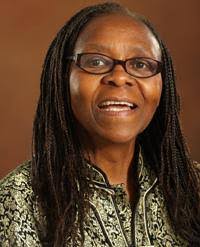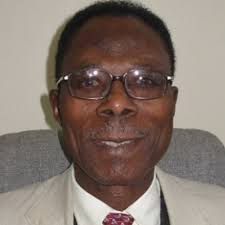Science Education At UJ
Home » Faculty of Education » Departments » Department of Mathematics, Science and Technology Education »
Connect with us
Ms Bianca de Jager
Tel: +27 11 559 2666
Fax: +27 11 559 2292
bdejager@uj.ac.za
Research Associates
Distinguished Visiting Professors
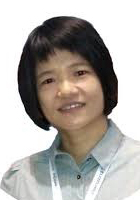 Prof Hsin-Kai Wu
Prof Hsin-Kai Wu
Hsin-Kai Wu is a NTNU chair professor in the Graduate Institute of Science Education at NTNU and a Distinguished Visiting Professor in the Faculty of Education at University of Johannesburg, South Africa. Her research interests include multiple representations, learning technology, inquiry learning, and chemistry education. Professor Wu’s research has been recognized at national and international levels, including the Outstanding Dissertation Award (2003) and the Early Career Award from NARST (2008), and the Outstanding Research Awards from Ministry of Science and Technology in Taiwan (2009 , 2014, and 2017)
Visiting Professors
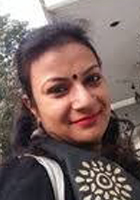 Dr. Garima Bansal
Dr. Garima Bansal
Dr. Bansal is a lecture at the University of Delhi, India and a visiting professor at the faculty of Education, university of Johannesburg. Her research interest are in the area of Educational Assessment and Evaluation, science education and mathematics education.
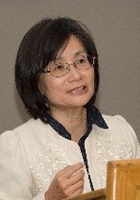 Prof Ying-Shao Hsu
Prof Ying-Shao Hsu
Ying-Shao Hsu is a chair professor of National Taiwan Normal University and a Visiting Professor in the Faculty of Education at University of Johannesburg, South Africa. Her research interests include inquiry-based learning, technology-enhanced learning, metacognition, and teacher education. Professor Hsu’s research has been recognized by Ministry of Science and Technology in Taiwan as the Outstanding Research Award (2011, 2015).https://www.researchgate.net/profile/Ying-Shao_Hsu
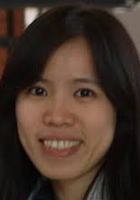 Prof Yi-Fen Yeh
Prof Yi-Fen Yeh
Prof Yi-Fen Yeh is an associate Professor of Curriculum & Instruction National Taiwan Normal University, Taipei NTNU Office of Teacher Education and Career Service
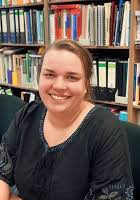 Prof Heike Wendt
Prof Heike Wendt
Prof. Heike Wendt is Acting Professor for School Pedagogy and Didactics at the University of Oldenburg in Germany. She has a PhD in Comparative Education from TU Dortmund University where she worked for many years at the Institute for School Development Research. Among other responsibilities, she has served as the National Research Coordinator for Germany’s participation in PIRLS 2011 and 2016 and TIMSS 2011 and 2015.
Meet our Post-Doctoral Research Fellows (PDRF)
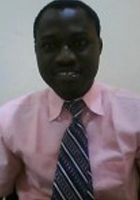 Dr Upahi Johnson Enero
Dr Upahi Johnson Enero
Website: https://scholar.google.com/citations?user=D7UYePoAAAAJ&hl=en
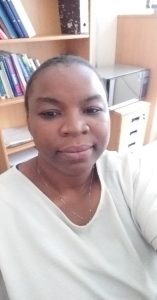 Dr Ayodele A. Ogegbo
Dr Ayodele A. Ogegbo
Dr Ogegbo has obtained her BSc (Ed) in Physics and MSc in Environmental Education from Lagos State University, Nigeria and her PhD in Science Education from University of Pretoria, South Africa. Currently, she is a Postdoctoral Research Fellow in the Department of Science and Technology Education (SCITECHED). She is an emerging researcher, and her research interest is focused on physics education, science education, and learning technology. Before joining University of Johannesburg, Dr Ogegbo worked at the Lagos State Ministry of Education as a senior education officer and served in various leadership capacities. She also worked as a Tutor at the Physics Department in University of Pretoria during her PhD studies. She is a member of International Council on Education for Teaching (ICET), American Association of Physics Teachers (AAPT).
Masters’ and PhD Students in Science Education
Study with us
List of qualifications
- Bachelor of Education (BEd) in Life Sciences and Physical Sciences Education
- Bachelor of Education (Hons) STEM Education
- Post Graduate Certificate in Education (PGCE) Natural sciences, Life Sciences and Physical Sciences
- Post Graduate Diploma (PGDip) in Science Education
- Masters of Education (MEd) in Science Education
- PhD in Science Education
Videos and Podcasts
Blended learning
ALL ABOUT THE VARSTEME HUB @ SCIED, UJ
The Virtual and Augmented Reality Science Technology Engineering and Mathematics Education (VARSTEME) HUB at the faculty of Education was initiated in 2019 by Prof U Ramnarain in collaboration with Prof Yiyu Cai a distinguished visiting Professor at SciTechEd.
The main aim of the hub is to facilitate science learning for pre-service and in-service Life, Natural and Physical Sciences teachers and to promote the use of futuristic 21st century technology for Africa’s science learners.
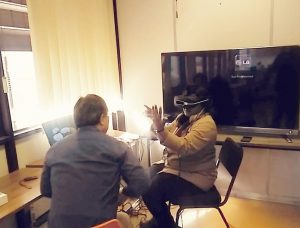 The vision:
The vision:
Prepare learners and teachers for future-fit classrooms of the forth industrial revolution, where technology-enhanced teaching and learning is fostered.
The Mission is to promote:
Alternative teaching and learning strategies using advance learning technologies.
Technological Pedagogical Content Knowledge (TPACK) of science teachers.
Address difficult concepts in science by enhancing visualisation of abstract phenomena
Technology-enhanced Inquiry-based approach to science learning.
WORKING IN VIRTUAL REALITY (VR)
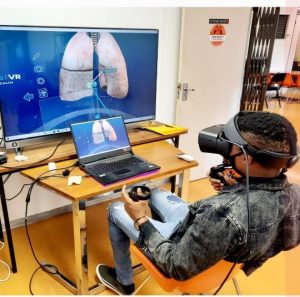 VR will provide a fully or partially immersive experience where the user’s mind is tricked, into thinking they are in an environment completely different from the real world. While immersed you will explore Natural sciences concepts.
VR will provide a fully or partially immersive experience where the user’s mind is tricked, into thinking they are in an environment completely different from the real world. While immersed you will explore Natural sciences concepts.
WORKING IN AUGMENTED REALITY (AR)
AR is one of the immersive technologies that improves user’s sensory perception of the real world by superimposing or overlaying virtual elements dynamically onto real environments.
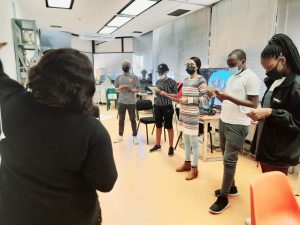 Some benefits
Some benefits
Benefits of using VAR enhanced learning, range from improvements in students’ achievements in science content tests, increased interest in science and motivation in pursuing STEM careers, interactive and immersive learning experiences and much more.
VARSTEME RESEARCH/COLABORATIONS
Culturally-anchored VAR simulations for the African continent
Re-enforcing technology-enhanced inquiry using virtual and augmented reality
Comparative VAR pre-service teacher education research
VAR School-based research
Pre-service teacher training research
In-service teacher training and professional development
Mobile VR teaching and learning
Host post-graduate research
Host post doctoral research Fellowships
Watch the short video for a demo of what happens at the VARSTEME hub
Contacts:
Prof. U Ramnarain: uramnarain@uj.ac.za
Research and Publications
Conference Proceedings (2017- 2019)
Dhurumraj, T. (2018). Science Teacher Beliefs and its Impact on Teaching Science. In. Proceedings of ISTE International Conference on Mathematics, Science and Technology Education, 22 – 25 October 2018. (pp.179-185). University of South Africa, Unisa Press. ISBN. 978-1-77615-047-2.
Dhurumraj, T. (2019). Teacher Content Knowledge and its’ Influence on Classroom Practices when Teaching Science in 4IR. In the proceedings of the International Conference on Education and Teaching (ICET).
Mavuru, L. (2017, October). Pre-service teachers’ analysis of the meaningfulness and relevance of the life sciences curriculum to South African learners. A paper presented at the ISTE International Conference on Mathematics, Science and Technology Education, Mopani, Limpopo, South Africa.
Mavuru, L. & Ramnarain, U. (2018, August). Improving science classroom interactions through the integration of learners’ socio-cultural background. A paper presented at the XVII Organisation for Science and Technology Education (IOSTE) Symposium, Malmo University, Malmo, Sweden.
Mavuru, L. (2019, January). Pre-service teachers’ analysis of the integration and progression of Life Sciences concepts from Grade 10-12. A paper presented at the Southern African Association for Research in Mathematics, Science & Technology Education (SAARMSTE) for 2019 Conference, University of KwaZulu Natal, Durban, South Africa.
Penn, M., & Ramnarain, U. (2018). The Effects of Scientific Literacy on High School Science Learners’ Attitudes towards Socio-Scientific Issues: The Case of Genetically Modified Organisms. In Proceedings of the 15th International Conference on Economics and Social Sciences: 16 -17, August 2018 Johannesburg, South Africa (pp. 106-118). ISSN # 2307-7549.
Penn, M., Ramnarain, U., & Wu, H-k. (2019). The relationship between Grade 12 Learners’ Understandings about Scientific Inquiry and Achievement in Physical Sciences. Proceedings of the 27th Annual Meeting of the Southern African Association of Research in Mathematics and Science Technology
Education (SAARMSTE) Conference hosted by University of Kwa-Zulu Natal, Durban, South Africa 15 January – 17 January 2019 (Long paper). ISBN #: 978-0-9922269-8-5.
Penn, M. & Ramnarain, (2019). The Use of Virtual Learning Environments and Achievement in Physics Content Tests. In the proceedings of International Conference on Education and New Developments, Porto, Portugal. (pp. 493-497) Vol 1. ISBN: 978-989-54312-5-0.
Ramaila, S. & Ramnarain, U. (2018). Assessment of physics practical work using innovative computer-based technology system. Proceedings of the International Conference on Education and New Developments, Budapest, Hungary, pp. 528-531. ISSN: 2184-044X. ISBN: 978-989-99864-8-0
Ramnarain, U. (2018). A content analysis of South African grade 12 Physical Sciences textbooks for “practices” of inquiry-based learning. In Proceedings of the 17th Annual Hawaii International Conference in Education, Honolulu, Hawaii.
Ramaila, S. (2019). Assessing South African undergraduate engineering students’ attitudes towards mathematics as a fundamental discipline. Proceedings of the 13th Annual International Technology, Education and Development Conference, Valencia, Spain, pp. 296-299. ISSN: 2340-1079. ISBN: 978-84-09-08619-1.
Ramaila, S. & Reddy, L. (2019). Assessing South African science students’ attitudes towards physics laboratory environment. Proceedings of the 13th Annual International Technology, Education and Development Conference, Valencia, Spain, pp. 300-303. ISSN: 2340-1079. ISBN: 978-84-09-08619-1.
Sondlo, A. (2018, August). An Analysis of the Coverage of Science News and the Use of Newspapers in the Science Classroom. XVIII IOSTE SYMPOSIUM Future educational challenges from a science and technology perspectives. 13-17 August, 2018 Malmö, Sweden.
Sondlo, A., & Ramnarain, U. (2018, October). A Case Study of the Pedagogical Orientations of Pre-Service Physical Sciences Teachers in One of the South African Universities. The 9th ISTE International Conference on Mathematics, Science and Technology Education at the Kruger National Park, South Africa on 21-26 October 2018.
Sondlo, A. (2018, October). The South African Pre-Service Teachers Physics Pedagogical Orientations. International Conference on Physics Education (ICPE), 1–5 October 2018, Misty Hills Hotel and Conference Centre, Muldersdrift, South Afric
Selected Journal Articles (2017-2019)
Herelall, P. J. & Dhurumraj, T. (). Factors that contribute to poor learner performance in Physical Sciences in the province of KZN in the Pinetown District. International Journal of Science Education.
Herelall, P. J., & T Dhurumraj, T. (). Senior phase science teachers’ pedagogic content knowledge of the periodic table: A case study of selected schools in KwaZulu-Natal, South Africa.
Lehesvuori, S., Ramnarain, U. & Viiri, J. (2017). Challenging transmission modes of teaching in science classrooms: enhancing learner-centredness through dialogicity. Research in Science Education. doi: 10.1007/s11165-016-9598-7
Mavuru, L. & Ramnarain, U. (2017). Teachers’ knowledge and views on the use of learners’ socio-cultural background in teaching Natural Sciences in Grade 9 township classes. African Journal of Research in Mathematics, Science and Technology Education, 21(2), 176-186. doi: 10.1080/18117295.2017.1327239
Mavuru, L. & Ramnarain, U. (2018). Relationship between teaching context and teachers’ orientations to science teaching. Eurasian Journal of Mathematics, Science and Technology Education, 14(8), em1564. doi.org/10.29333/ejmste/91910
Mupira P. & Ramnarain U. (2018).The effect of inquiry-based learning on the achievement goal-orientation of grade 10 physical sciences learners at township schools in South Africa. Journal of Research in Science Teaching, 55(6), 810-825.
Penn, M. & Ramnarain, U. (2019). South African university students’ attitudes towards chemistry learning in a virtually simulated learning environment. Chemistry education research and practice. http// doi: 10.1039/c9rp00014c.
Ramaila, S. (2019). A comparative analysis of school physics curriculum content in selected countries. Journal of Physics. Accepted
Ramnarain, U. & Moosa, S. (2017). The Use of Simulations in Correcting Electricity Misconceptions of Grade 10 South African Physical Sciences Learners. International Journal of Innovation in Science and Mathematics Education, 25(5), 1-20.
Ramnarain, U. & Ramaila, S. (2018). The relationship between chemistry self-efficacy of South African first year university students and their academic performance. Chemistry Education Research and Practice, 19(1), 60-67.
Upahi, J.E. & Ramnarain, U. (2018). Representations of Chemical Phenomena in Secondary School Chemistry Textbooks. Chemistry Education Research and Practice, 20(1), 146-159.
Upahi, J.E., Ramnarain, U. & Ishola, I.S. (2018). The Nature of Science as Represented in Chemistry Textbooks Used in Nigeria. Research in Science Education. https://doi.org/10.1007/s11165-018-9734-7
Selected books and book Chapters
Mavuru, L. (2019). Teaching Evolution to Grade 12 Learners: Teachers’ views and pedagogical practices. In M. Carmo (Ed.) Education Applications & Developments IV: Advances in Education and Educational Trends Series (pp. 148-158). Portugal: In Science Press. http://press.insciencepress.org/index.php/press/catalog/book/18.
Ramnarain, U. (2017). An analysis of South African school science textbooks for representations of nature of science, Representations of nature of science in school science textbooks: A global perspective, Routledge
Ramnarain, U. (2018). Coherence in the teaching of South African Chemistry lessons, Science Education. Research and Practice in Asia-Pacific and Beyond, Springer
Ramnarain, U. (2018). Scientific Literacy in East Asia: Shifting Toward an Inquiry-Informed Learning Perspective. Primary Science Education in East Asia, Springer

